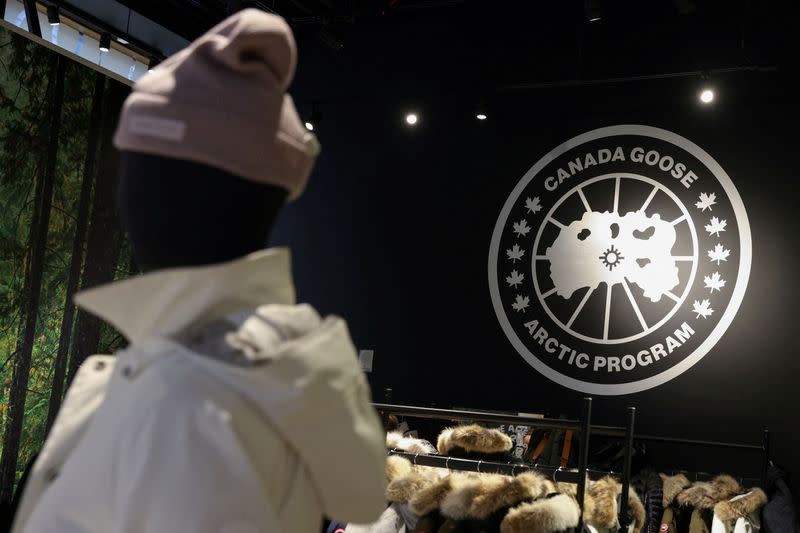Canada Goose cuts forecasts after spike in China's COVID infections hit sales
- Oops!Something went wrong.Please try again later.
By Granth Vanaik
(Reuters) -Canada Goose Holdings Inc cut annual forecasts on Thursday after a spike in COVID-19 infections in China dulled store traffic and inflation bit into spending power in North America.
Toronto-listed shares of the luxury parka maker fell 15% after it also missed third-quarter revenue and profit estimates.
Businesses of luxury goods companies in China have suffered for the last three years from intermittent lockdowns, but Canada Goose said Beijing's decision to dismantle its zero-COVID policy late last year only added to the company's headaches.
"We did not anticipate the sudden reopening in early December," said Chief Executive Dani Reiss on an earnings call.
"This led to a surge in infections, which had a significant impact on our business during what is typically our most productive trading month. Consumer traffic decreased dramatically and staffing levels were impacted due to illness," Reiss added.
Still, Reiss said he was confident business would bounce back in the country, with January already showing a 30% rise in same-store traffic on the year.
High-end cosmetics maker Estee Lauder Cos Inc also cut its profit outlook on Thursday citing uncertainty around recovery in China, but said it expected a return to growth in the second half of the year.
Canada Goose cut its fiscal 2023 sales forecast to between C$1.18 billion and C$1.20 billion ($887.89 million and $899.89 million), from C$1.2 billion to C$1.3 billion previously, and said demand in North America was also slowing.
"Canada Goose's slowing North America trends suggest macro headwinds are increasingly impacting luxury demand," said UBS analyst Jay Sole.
The company expects full-year adjusted profit of 92 Canadian cents to C$1.03 per share, down from a prior outlook of C$1.31 to C$1.62.
Its revenue fell to C$576.7 million in the quarter ended Jan. 1, below the estimate of C$623.6 million in Refinitiv data.
($1 = 1.3335 Canadian dollars)
(Reporting by Granth Vanaik in Bengaluru; Editing by Milla Nissi)


